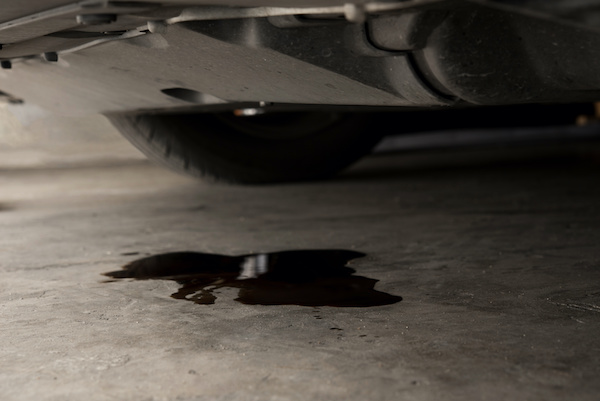Posted on 8/31/2020

Changing your oil is one of the most important and simplest car maintenance tasks you could do. High quality, clean oil helps prevent too much friction from taking place within the engine. It prevents corrosion by keeping the engine lubricated to avoid any essential components from rubbing together. As oil gets dirty, it becomes less effective, leading to vital parts wearing down on each other. If it’s been a long time since you’ve had an oil change, your check engine light may come on, or you may notice a leak in extreme circumstances. It can even come as a surprise if you see a puddle of oil under your vehicle after running an errand. Below are a few key reasons why oil may leak while your car is parked: A blown head gasket If you’re driving an older vehicle, the head gasket could be blown. There’s also the possibility that the rubber material surrounding the engine block may have decomposed. Both of these items would eventually need to be re ... read more
Posted on 5/23/2020
How to Deal with the Dashboard Light You're driving along when a light illuminates on your dashboard. You look down and see a little icon of an oil can. That is your change oil light. If you are like a lot of drivers, you aren't fully sure what it means. So, most of the time, you just take it to your mechanic. Of course, a lot of other drivers just ignore the light. Below is a little of what you need to know about what it means. The Change Oil Soon Light Most vehicles have a change oil soon light. This turns on when you need to change your oil soon. Undoubtedly, you are shocked by this revelation. Don't wait on getting that oil change. Whether you do it yourself or have someone take care of it for you, it is best to take care of it right away. You can likely drive for around a week after it turns on without an issue. However, it is not worth the risk to push the limits. Just get the oil change then continue driving. This type of light counts the miles between oil changes. When you have ... read more
Posted on 3/9/2020
What You Need to Know and Why Are you using the proper oil in your vehicle? Motor oil comes in a range of types and weights, and every brand seems to have slightly different additives featured. If you're feeling lost comparing motor oils for your next oil change, find out all you need to know about oil viscosity and convenient oil changes. What Is Viscosity? Viscosity refers to the thickness of your motor oil. More importantly, it describes the thickness of oil at various temperatures. As your engine is running, your motor oil heats up and thins out. Cooler temperatures, particularly freezing temperatures, dramatically thicken the engine oil. That this means is that your oil weight and climate both play a part in the efficiency of your engine. Why Does It Matter? To properly lubricate your engine, your oil needs to remain within set parameters of viscosity. Too thin, and it won't properly coat moving components. Too thick, and it won't flow properly to avoid friction. This balance can ... read more
Posted on 3/2/2020
What It Is and Why You Don't Want It! Don't let sludge damage your engine. As unpleasant as it sounds, engine sludge is contamination and buildup that occurs over time with normal use. Enjoy frequent, reliable oil change services in your area to prevent this buildup from damaging your engine and reducing your horsepower and fuel efficiency. What Is Engine Sludge? This unpleasant sediment comes from congealed oil and additive breakdown. Over time, motor oil breakdown causes both hard and soft sludge to build up in your engine, which can reduce the efficiency of your oil and cause moving parts to stick. Older vehicles may have more buildup, particularly if you're using conventional oil from a budget brand. Most oil includes additives to help clean and lubricate your motor, but even these additives can break apart and create sludge. While synthetic oil reduces the amount of engine sludge, no oil brand, weight or type will prevent sludge buildup. The best protection strategy for your engin ... read more
Posted on 8/2/2019
Essential Services: Explained Are you curious about what is done during routine oil change service? Here's what happens when you bring your vehicle to Austin's Automotive Specialists in Lakeway, Texas for its service. Remove Old Oil Once your vehicle is carefully parked in our bay, our technicians raise the vehicle to easily access components underneath. They drain the old motor oil into a pan for safe disposal, being careful of parts and the oil itself that may be hot. It may take a few minutes for all of the oil to drain out. The drain plug and gasket are inspected and cleaned before being replaced. Change the Oil Filter Oil filters accumulate contamination and must be replaced with the proper fitting filter during oil change services. When loosening the oil filter, our technicians are careful to catch any trapped oil in the drain pan. The filter gasket is primed with a light coating of the new motor oil for smooth installation. Then, the new oil filter is tightened into place. Add N ... read more